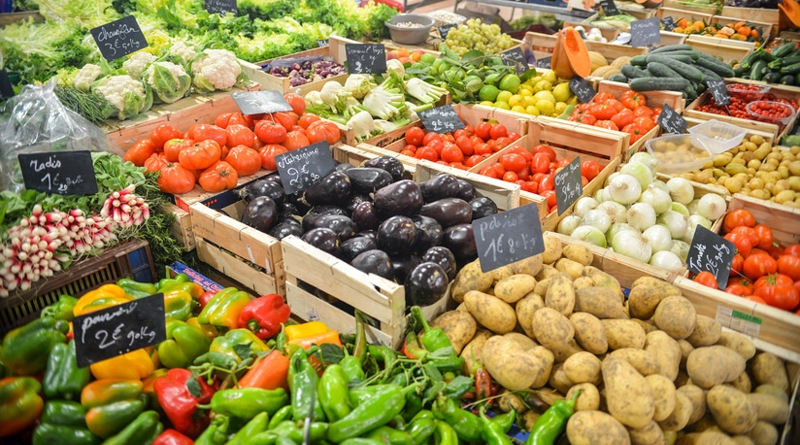5 EXCUSES FOR NOT EATING HEALTHILY – AND HOW TO OVERCOME THEM
As a health and wellness coach I spend a lot of time listening to people talk about their health, fitness and weight loss goals, and about why they are struggling to achieve them. I have found that the same excuses come up over and over again, and as a result my focus as a coach is generally on analysing what’s behind the excuses, gently challenging them, and then helping clients to overcome them with some creative thinking and an open mind.
Here are the top five most common excuses for not eating healthily, and some suggestions on how to start thinking differently and put the excuses behind you:
1. Healthy food is boring
When clients tell me that they find healthy food boring, I ask them for examples. Usually they say cottage cheese (particularly the low fat version), yoghurt (once again, the low fat versions), rice cakes, low calorie ready meals and calorie counted sandwiches. And they’re right, those foods are boring, but they’re also not healthy food. They are just low calorie and/or low fat, which is a very different thing. Low calorie or low fat foods are more processed than the normal versions and have less flavour, although manufacturers do try to compensate for the lack of flavour by adding additional sugar, artificial flavourings and sometimes salt, none of which is going to do you any good.
So if you find a food boring, don’t eat it. Take some time to look around your supermarket and try something new and natural – fruits, vegetables, nuts, pulses and lean proteins. And search out some healthy cookbooks. Healthy food can be tasty, varied and satisfying if you look beyond the usual (not healthy) suspects.
2. I don’t have time to prepare healthy food
Marketing has a lot to answer for. Food is advertised as “Ready in a few minutes”, “Great for busy mums”, “For time-pressured people”, “For snacking on the go”. The implication is that we are all too busy to prepare and sit down to eat real food, and we must believe it, based on the number of cabinets dedicated to ready meals in supermarkets these days.
Fetch a piece of paper and a pen. Write down how you spend a typical day – getting up, showering, working, drinks after work, watching TV, checking Facebook and Twitter, chatting, reading magazines, painting your nails, gaming…..? Then take a look at your list and tell me whether every activity you’ve written down is a productive one. What activity could you remove or at least reduce to make some time to prepare real food?
But actually healthy food doesn’t have to take hours to prepare. It can take a few minutes – you could do a stir fry, make an omelette, assemble a salad, grill or pan fry some meat or scramble some eggs. None of those things will take much longer than the time you spend watching a ready meal rotating in a microwave or fetching a takeaway. Or you could put something in the oven and go and get on with something else while it’s cooking.
3. I can’t stick to diets
Being on a diet will always be hard. You’re following a set of rules devised by someone who doesn’t understand your lifestyle, you’re restricting your food intake and you’re going without foods you love. That’s never going to feel great and if you’ve tried before and failed, trying the same thing again is unlikely to succeed next time around. So ditch the diets.
Diets are not the same as healthy eating. Diets are restrictive, and when something is declared off limits, guess what? You can’t stop thinking about it. Diets require food intake to be constantly monitored – points, calories, red and green days, etc. So once again, guess what? You end up thinking about food all the time. Not a great idea when you are trying to reduce what you eat. And that leads on to another problem with diets: they generally concentrate on reducing intake, so you’re constantly trying to exercise restraint and feeling deprived.
In contrast, healthy eating is about improving the quality of your food, rather than reducing the quantity. It’s about nurturing your body because you like it and want to take care of it, in contrast to dieting which seems to be about punishing your body and yourself. Eating well improves the way your body functions and changes the way it stores or burns fat, so if you do have excess weight to lose, you will lose it.
4. I’m eating out
Do you see eating out as a break from “normal” eating? It’s not, it’s still just choosing food and feeding your body. Your body doesn’t process the food eaten in restaurants any differently to the food you eat at home.
So whilst you might not want to abstain totally from all the goodies on offer, you don’t have to have everything you like. You don’t have to have several pieces of bread from the bread basket before the starter has arrived, you don’t have to choose three unhealthy courses, you don’t have to order a side dish of fries to accompany your main course, you don’t have to steal fries off your partner’s plate, you don’t have to eat everything on your plate(s) despite being full.
Instead, try reaching a compromise with yourself. If you want a burger, have it without the bun, ask for salad instead of fries, or share a portion of fries. If you want a dessert, don’t have a starter. If you want a stodgy main course have a salad for starter. Make some healthy choices to give yourself permission to enjoy an unhealthy one. It doesn’t have to be all or nothing.
And don’t be afraid to go “off-menu” – you’re the paying customer and restaurants should be happy to accommodate you – ask for salad with dressing on the side, steak without sauce or dessert without extra cream.
5. I just can’t resist…
We all have our food nemesis. Chocoholic anyone?
Many salty and sugary foods are purposely formulated to be moreish. Sweets, biscuits, crisps are all designed to make you love them – so you eat them until they’re gone and then the next time you go shopping you buy more. The problem isn’t you, it’s the food. Don’t be duped by the manufacturers into feeling you’re powerless to resist!
In fact you only need to resist something if it’s there to be resisted. Use your resistance while in the supermarket so you don’t need to resist every day at home. So whilst you shouldn’t attempt to give up your favourite food totally, neither should you keep it around at all times. Make it an occasional treat rather than a constant temptation. And when you do have it, really savour it, without a side order of guilt. Far better to enjoy it fully once in a while than overeat it regularly but never enjoy it because you always feel guilty about it. And it’s amazing how many of my clients lose what they thought were uncontrollable cravings when they know they are “allowed” something they love.
So there you have it – five common excuses and some thoughts, and practical advice, to demonstrate that these are not impossible to overcome. If you find yourself using the same excuses over and over again, whilst kicking yourself for not being as healthy, slim, energetic and happy as you want to be, ask yourself if you are accepting your own excuses as insurmountable truths, when really they are just one view of a situation which you can change if you open your mind and get creative with your thinking. Overcoming your excuses is the key to your success.

ABOUT THE AUTHOR
Joanne Henson is a health and weight-loss coach, specialising in helping people with a history of failed diets and fitness regimes to change their relationship with food and exercise for good. From unhealthy beginnings she overcame her own obstacles and now motivates and inspires others to become the healthier, leaner, happier people they’ve always wanted to be.
Joanne is the author of ‘What’s Your Excuse For Not Eating Healthily?’ and ‘What’s Your Excuse For Not Getting Fit?’ Both are available on Amazon in Paperback and Kindle format.
Follow Joanne on Twitter: @Joannemh and @whats_yr_excuse

